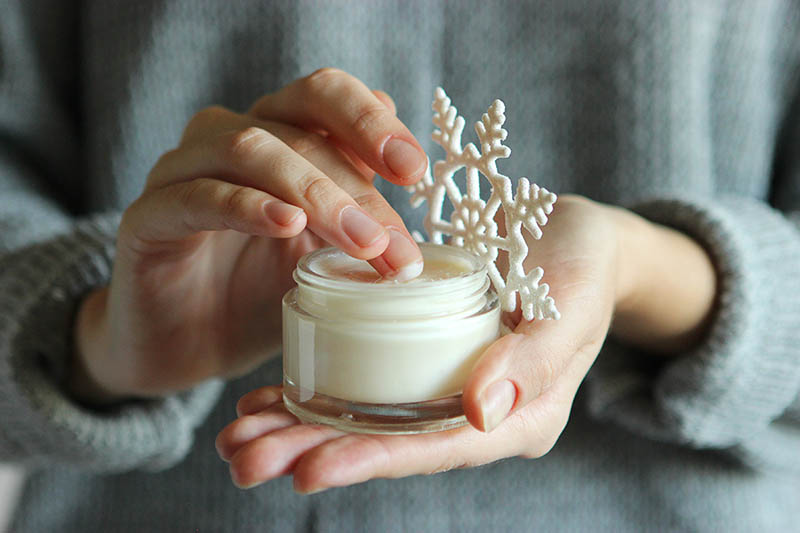7 Tips for Preventing and Treating Winter Eczema
Wintertime doesn’t need to be miserable for your skin .

Winter is a time of wonderlands, hot drinks, cozy evenings, holidays and sometimes cracked, bleeding hands. If that sounds familiar, you may be suffering from winter eczema. Here are some ways to help relieve the discomfort of irritated skin.
Related: Tips for Keeping Your Skin and Hair Healthy in the Winter
Pay attention to your clothes
Some types of synthetic fabrics are irritating to the skin. If you suspect this is the case for you, wear natural fabric clothes made from cotton, cashmere, or silk. Although they are warm, polyester and wool aren’t usually friendly to your skin.
Keep in mind that your laundry detergent may also be irritating your skin. Consider switching your detergent for a gentler formulation without the harsh ingredients.
Wear gloves every time you go outside
Exposed areas of your body, like your face and hands, are more susceptible to eczema flare-ups. The drastic temperature changes your skin experiences by being inside then outside in the cool winter weather causes the skin to dry out.
Try covering those sensitive areas when you go outside. Mittens protect your hands and a scarf, neck warmer, and hat protect your face.
Take off damp clothing
Be sure to remove damp clothing as soon as you are inside. It’s irritating to your skin.
Slather on the cream
Moisturizing is critical. Because not all skin products are made equal, it is better to opt for a cream or ointment instead of a lotion or gel. Dermatologists recommend using a cream or ointment at least twice a day for four weeks to reduce eczema symptoms.
Petroleum jelly—an ointment—has a high oil content and is very good for eczema. Ointments are preferred for treating eczema but leave a heavy residue on the skin. If you can’t stand the residue, a cream may be a better option.
Lighter than an ointment, creams are deeply moisturizing and can be soothing for irritated skin.
Lotions and gels are mostly made of water, so they evaporate quickly and have the least amount of oil. These products are better than nothing, but not as effective as using an ointment or cream.
When selecting a product, take a moment to look at the ingredients label to ensure that it is free from fragrances, stabilizers, and preservatives. These ingredients are often irritating to the skin. You can also look for the National Eczema Association seal.
The seal doesn’t necessarily mean it’s endorsed by the National Eczema Association, but they evaluated the product to see if it has ingredients known to be damaging to those with eczema.
Don’t wash your body every day
If your body can tolerate it (meaning, you don’t sweat much), skipping a daily shower helps your skin maintain moisture. Harsh soaps can be very drying for skin, particularly soaps that contain fragrance and essential oils. Switch to unscented body wash and cut down on how often you’re soaping up your body.
Use a humidifier
Ironically, even when there is a lot of snow on the ground, winter is just a dry season. The air is dryer both inside and outside your home. Adding a humidifier—particularly in the room you sleep in—can help prevent sad, cracked skin by adding more humidity and moisture to the air.
Soak in the sun
One study suggests vitamin D benefits skin that is prone to eczema. Try getting outside a little each day (while covering the driest parts of your body). Vitamin D not only helps your skin, it can also improve your mood.
Remember to still use products that protect your skin from too much exposure, even in the winter months. Sunburns are damaging to your skin, so wear protection if you’re going to be out for longer than 15 minutes.
Related: What Actually Happens to Your Body When You Get Sunburned
Winter doesn’t have to be miserable because of your skin. If you are trying these tips and still suffering from extreme eczema, contact a dermatologist. Some levels of eczema need to be treated with prescriptions.



